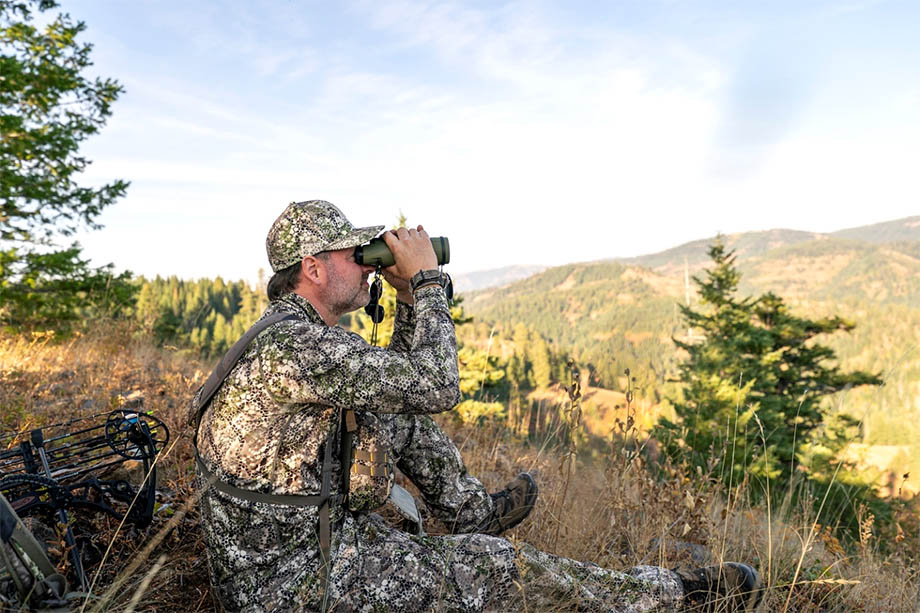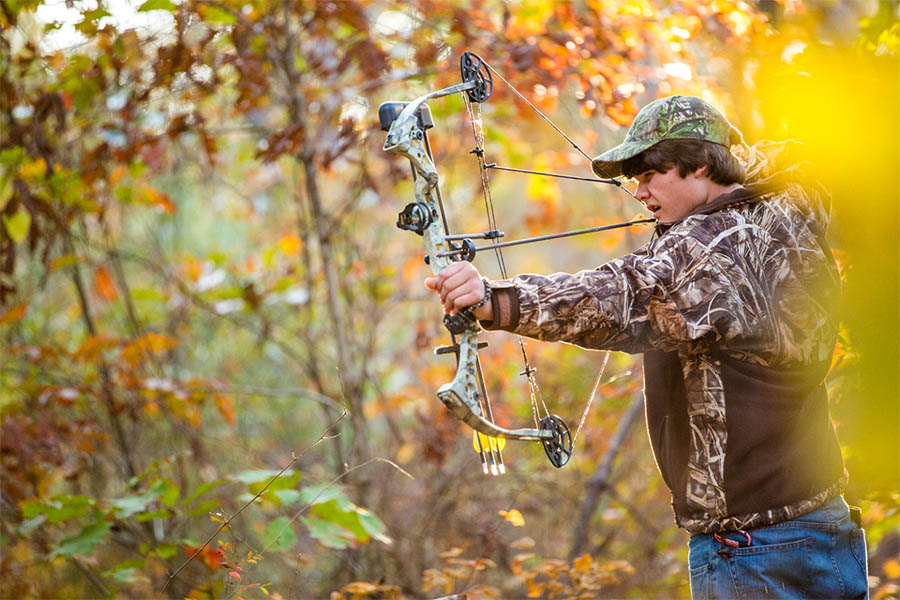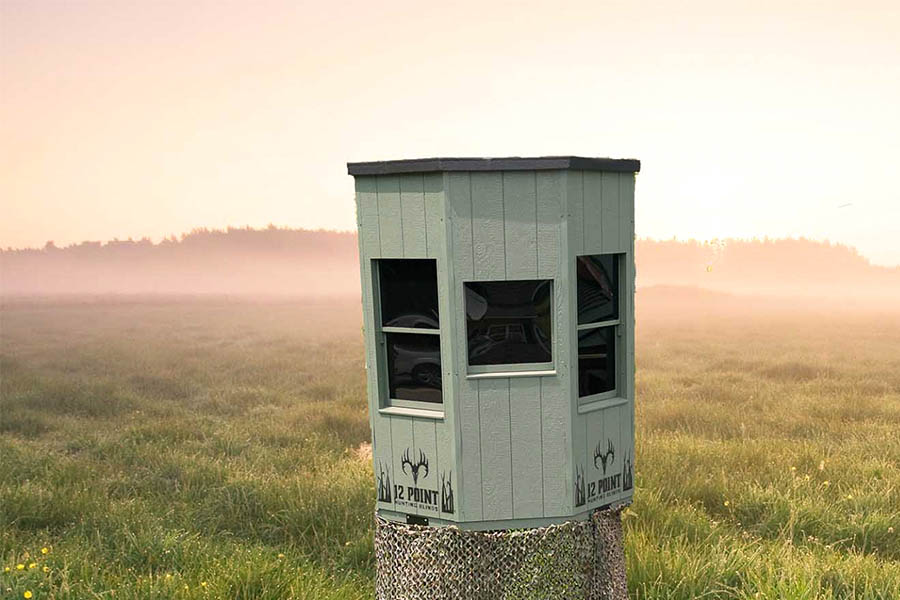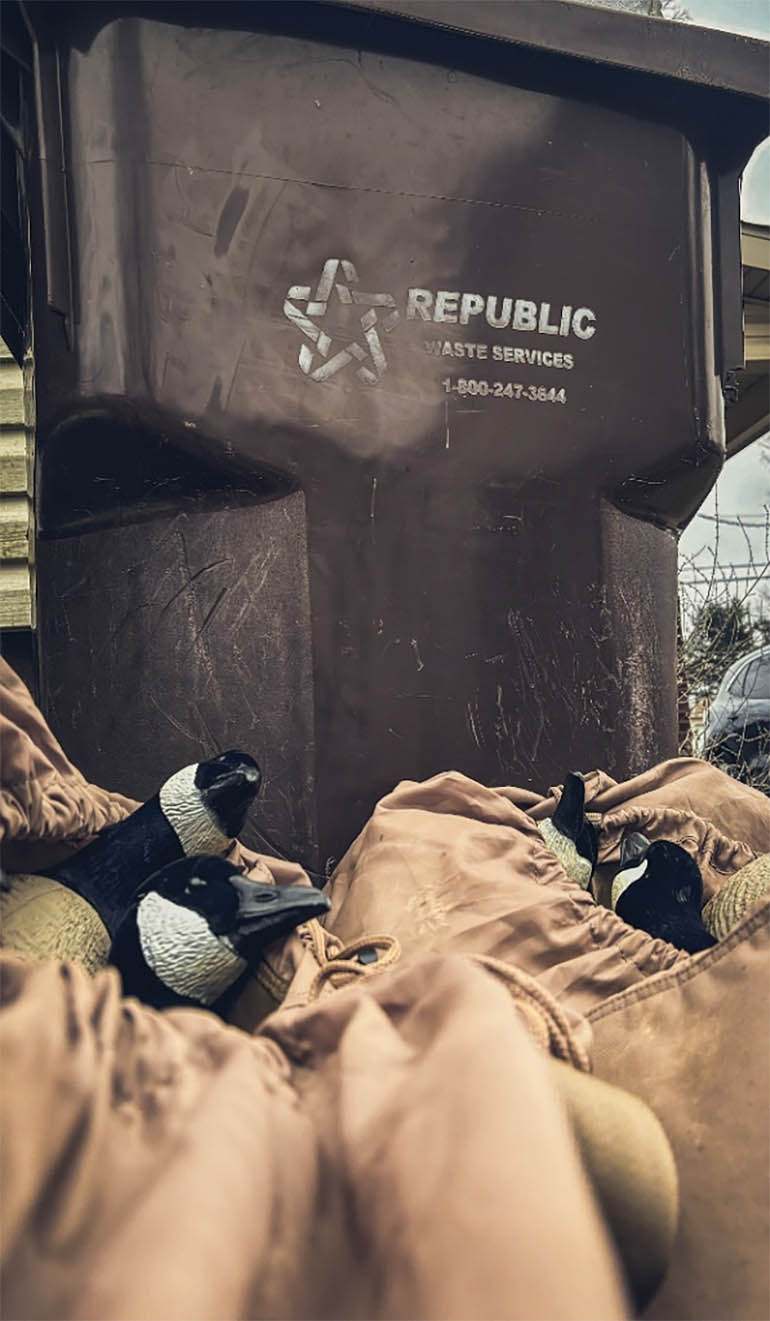The Mental Game: Developing Focus and Patience for High-Level Hunting

Hunting is a pursuit that requires more than just physical prowess and technical skill. It demands a high level of mental acuity, an unwavering focus, and a wellspring of patience that seasoned hunters come to deeply appreciate. In the world of high-level hunting, where split-second decisions and extended periods of waiting are equally significant, the mental game becomes a defining factor in achieving success.
Picture a scenario: you’re nestled in a well-camouflaged blind, the sun rising slowly over the horizon, the anticipation tangible in the air. You know that patience is as crucial as the accuracy of your shot. You’re attuned to every rustle, and every movement while remaining steadfastly focused on the task at hand. This blend of sharp focus and patient endurance is what sets the experienced hunter apart.
Throughout this article, we will delve into the core of the mental game, shedding light on the significance of focus and patience in high-level hunting. We will uncover strategies, techniques, and insights that seasoned hunters can adopt to refine their mental acumen and elevate their hunting experiences. From understanding the role of mental attributes to cultivating unwavering focus, we aim to equip experienced hunters with the tools they need to harness the power of their minds in the pursuit of their passions.
The Hunter’s Mentality
Developing a hunter’s mentality is a critical part of becoming a well-rounded hunter. An experienced hunter knows that mental attributes like focus, patience, determination, and resilience are every bit as important as being able to shoot straight or being physically fit. For high-level hunting mastery, these attributes serve as the cornerstones of achievement, often determining the hunter’s approach, decisions, and ultimately, outcomes.
Luckily for beginning hunters, the hunter’s mentality is something that can be learned and improved upon over time. Even before stepping foot into the field, there are strategies and steps that a hunter can take to develop a strong hunter’s mindset and cultivate the soft skills needed to have a successful hunt.
Developing Unwavering Focus and Patience
Two of the most useful mental skills that a hunter can develop are focus and patience. Focus involves a hunter using their senses to hone in on activity in a particular area, detect the direction of the wind, and plan their next move. In the field, hunters may experience any number of distractions that nature may offer up. Being focused allows a hunter to sort through the vast array of sights and sounds and hone in on detecting any useful information. This keeps the hunter ready to act when the time comes and is more than just a mental strategy as it keeps the body physically ready to act.
Going along with focus, a hunter must develop patience. A ton of time hunting is spent waiting. Just sitting, being patient, and waiting. For the impatient hunter, this could mean moving to a new location too soon or moving around too much and scaring off any potential game. A patient hunter can sit and observe an area for a long time, which may be a particular advantage when hunting big game species. For big game, animals are more likely to move into your area if you are sitting patiently and waiting, it is unlikely that you will be able to tramp around and stumble upon a shootable animal.
Developing these skills is something that can be done before the hunting season ever starts and can be done in your own home. When it comes to preparing for a hunt, you may not think about mindfulness and meditation, however, these skills may help you to stay calm in the field and allow you to stay out for longer periods.

Practicing mindfulness begins with focusing on breathing, keeping your breathing calm, and listening to your breathing pattern may help you to stay in the moment and focused on the task at hand. Meditation work, like mindfulness, also forces you to become comfortable focusing on one thing for a long period. Translating this to hunting may be as simple as continually reminding yourself to focus on what you hear, see, smell, or feel.
Mental Resilience in Adverse Situations
Hunting doesn’t always happen under perfect conditions. Often the weather is cold, windy, snowy, or rainy, and huntable terrain may include soul-crushing underbrush or steep climbs. Experienced hunters understand that the wild can be unpredictable and that nature doesn’t always adhere to our plans. It’s during these unpredictable moments that mental resilience becomes a hunter’s greatest asset.
Mental resilience starts with acknowledging that not every hunting trip will unfold according to your expectations. Weather conditions can change rapidly, equipment might malfunction, or game animals may behave unpredictably. Resilience means accepting these variables as part of the hunting experience. While the body can withstand adverse conditions up to a point, the mind may decide to end a hunt early. Developing mental resilience is key to staying out in the field longer, pushing through tough terrain, and having the fortitude to wait in one place for a long time.
Building mental resilience in hunting is a gradual but invaluable process that enhances your ability to handle the unpredictabilities of the wild with composure and confidence. To build resilience, start by embracing adversity as a learning opportunity. Every challenge, whether it’s a missed shot, inclement weather, or a quiet day in the woods, presents a chance to build resilience. Instead of dwelling on setbacks, analyze them objectively. What went wrong? How can you improve for the future? This reflective mindset transforms difficulties into steppingstones for growth, enhancing your ability to bounce back from disappointments and setbacks.

In addition to embracing adversity, hunters should also practice adaptability and flexibility. Mental resilience thrives when you can adjust your plans and strategies in response to changing circumstances. When conditions in the field take an unexpected turn, embrace the opportunity to adapt. This might mean altering your hunting location, changing tactics, or adjusting your expectations. Being mentally flexible not only helps you handle adversity but also enhances your overall effectiveness as a hunter.
Visualization and Mental Rehearsal
Visualization, often referred to as mental rehearsal, is a powerful tool for enhancing focus and success in high-level hunting. It involves mentally imagining and rehearsing different hunting scenarios, creating a mental blueprint for success. Here are 6 ways to effectively incorporate visualization into your hunting routine:
- Prepare the Mind: Find a quiet, comfortable space where you can sit or lie down without distractions. Close your eyes and take a few deep breaths to relax your body and mind.
- Create a Detailed Scenario: Visualize the entire hunting experience in as much detail as possible. Start with the moment you arrive at your hunting location. Imagine the terrain, the weather, and the sounds of the natural world around you.
- Engage All Senses: To make the visualization as vivid as possible, engage all your senses. Imagine the scent of the forest, the feeling of the cool breeze on your skin, and the sounds of wildlife in the distance. The more senses you involve, the more realistic and effective your visualization becomes.
- Mentally Rehearse Actions: Visualize the specific actions you’ll take during the hunt, such as setting up your gear, tracking, and finally taking the shot. Imagine yourself making each movement with precision and confidence.
- Envision Success: See yourself accomplishing your hunting goals. Picture the game animal in your sights, the perfect shot, and a successful harvest. Feel the satisfaction and accomplishment that come with a successful hunt.
- Practice Regularly: Make visualization a regular part of your pre-hunt routine. Spend a few minutes each day leading up to your hunt engaging in this mental exercise. The more you practice, the more effective your visualization becomes.

Visualization is a skill that can significantly enhance your hunting performance. By mentally rehearsing and preparing for different hunting scenarios, you build the mental fortitude and focus necessary for success in the field. Incorporating regular visualization exercises into your hunting routine can be a game-changer, helping you stay mentally sharp and confident during every hunt.
Dealing with Adrenaline and Nervousness
Adrenaline, often referred to as the “hunter’s high,” is a potent physiological response that can both sharpen your senses and cloud your judgment during high-stakes moments in hunting. Managing this surge of adrenaline is a key component of maintaining focus and making sound decisions. Here’s how to effectively handle adrenaline in the field:
- Controlled Breathing: One of the most immediate and effective ways to manage adrenaline is through controlled breathing. When you feel the rush of adrenaline during a critical moment, pause and take slow, deep breaths. This calms your nervous system, regulates your heart rate, and helps you maintain a clear head. Practice controlled breathing in low-pressure situations to make it a natural response during the high-pressure moments of a hunt.
- Mindful Awareness: Adrenaline can make you feel hyper-alert, but it can also lead to tunnel vision, where you focus intensely on the target to the exclusion of everything else. Combat this by practicing mindful awareness. Acknowledge the surge of adrenaline but consciously expand your awareness of your surroundings, the wind direction, and other relevant factors. This broader focus can help you make more informed decisions in the heat of the moment.
- Mental Rehearsal: Visualization techniques, as discussed earlier, can be invaluable for dealing with adrenaline. By mentally rehearsing various hunting scenarios, including those involving adrenaline-inducing moments like a shot opportunity, you can desensitize yourself to the physiological response. This practice helps you stay composed and focused even when adrenaline courses through your veins.
- Experience and Exposure: The more you expose yourself to adrenaline-inducing situations, the better you become at managing them. Experience gradually builds familiarity and confidence, making it easier to handle the rush. Consider participating in mock hunting scenarios or target practice that simulates real hunting situations to become more acclimated to the adrenaline response.
- Self-Talk: Positive self-talk can help you manage adrenaline by keeping your mind in check. Develop a set of calming phrases or reminders that you can repeat to yourself during high-pressure moments. This self-talk can counteract negative thoughts or panic and help you stay focused on the task at hand.

Adrenaline is a natural and powerful response to the excitement of hunting, but learning to manage it effectively is crucial for maintaining clarity, making ethical decisions, and achieving success in high-pressure situations. By practicing techniques like controlled breathing, mindful awareness, and mental rehearsal, you can harness the energy of adrenaline to enhance your hunting experience rather than letting it overwhelm you.
Wrapping Up
Many hunters focus solely on the physical aspects of hunting such as getting in shape, buying the best gear, and scouting great locations. However, the physical side is only half of the hunt. By embracing and growing their mental capabilities hunters can improve their skills and put more meat in the freezer year after year. Some strategies that may help a hunter to bag more animals include: developing a hunter’s mentality, learning to focus and be patient, enhancing mental resilience, practicing visualization, and managing adrenaline. By doing these things hunters can stay calm, cool, and collected in the field which will lead to a more successful and fun hunting experience.
Make a 12 Point Blind Part of Your Hunting Experience – Locate a Dealer Near You HERE!






